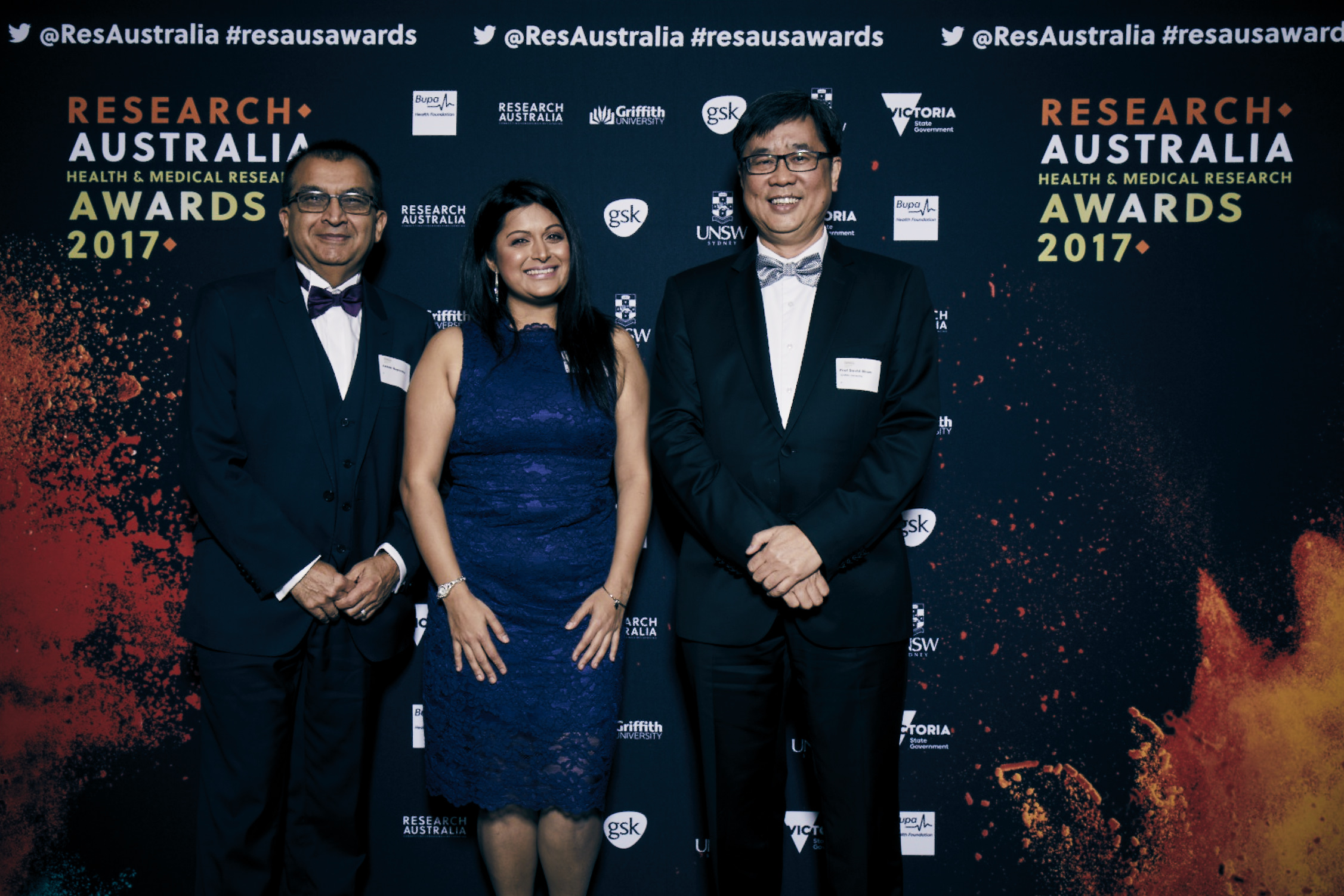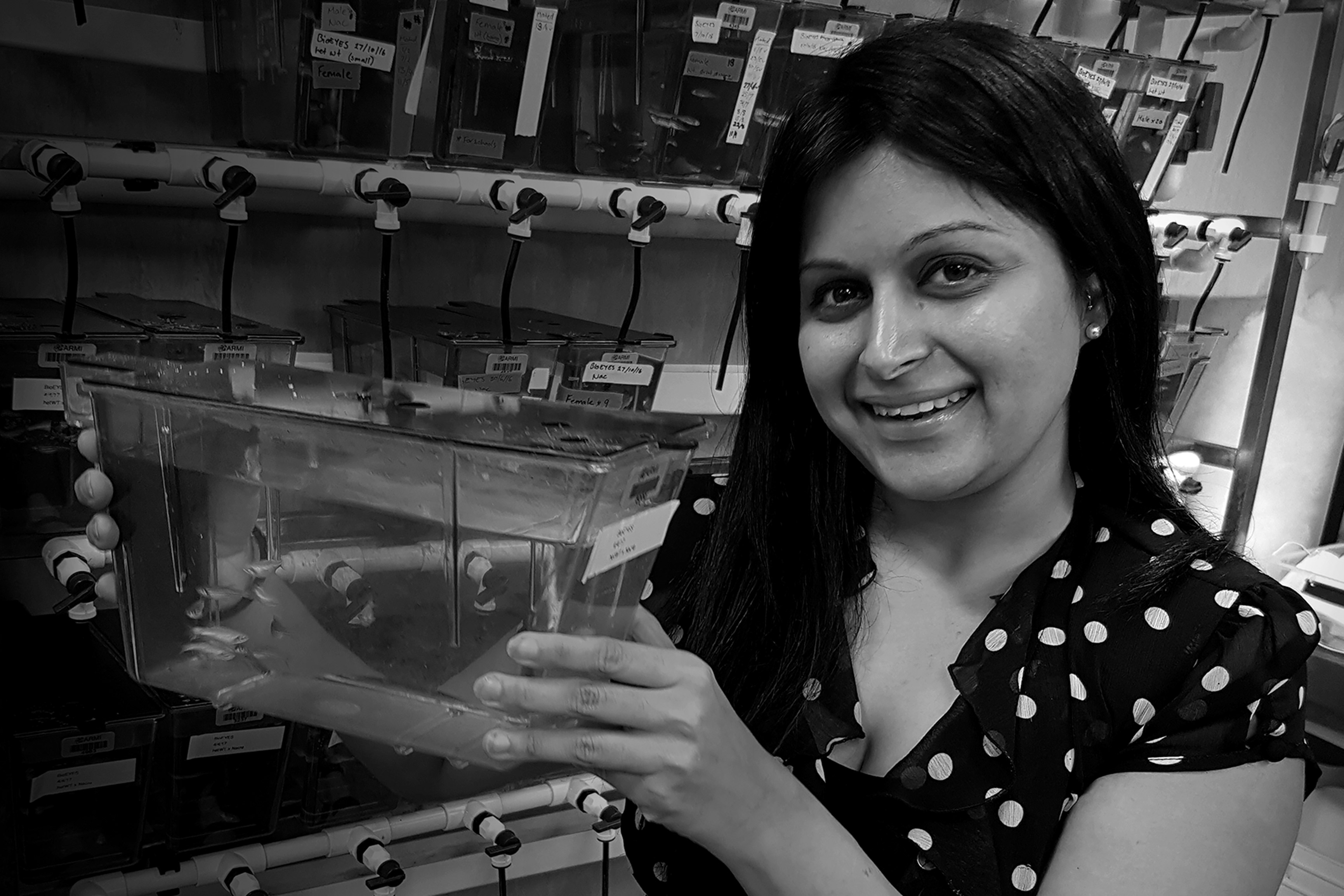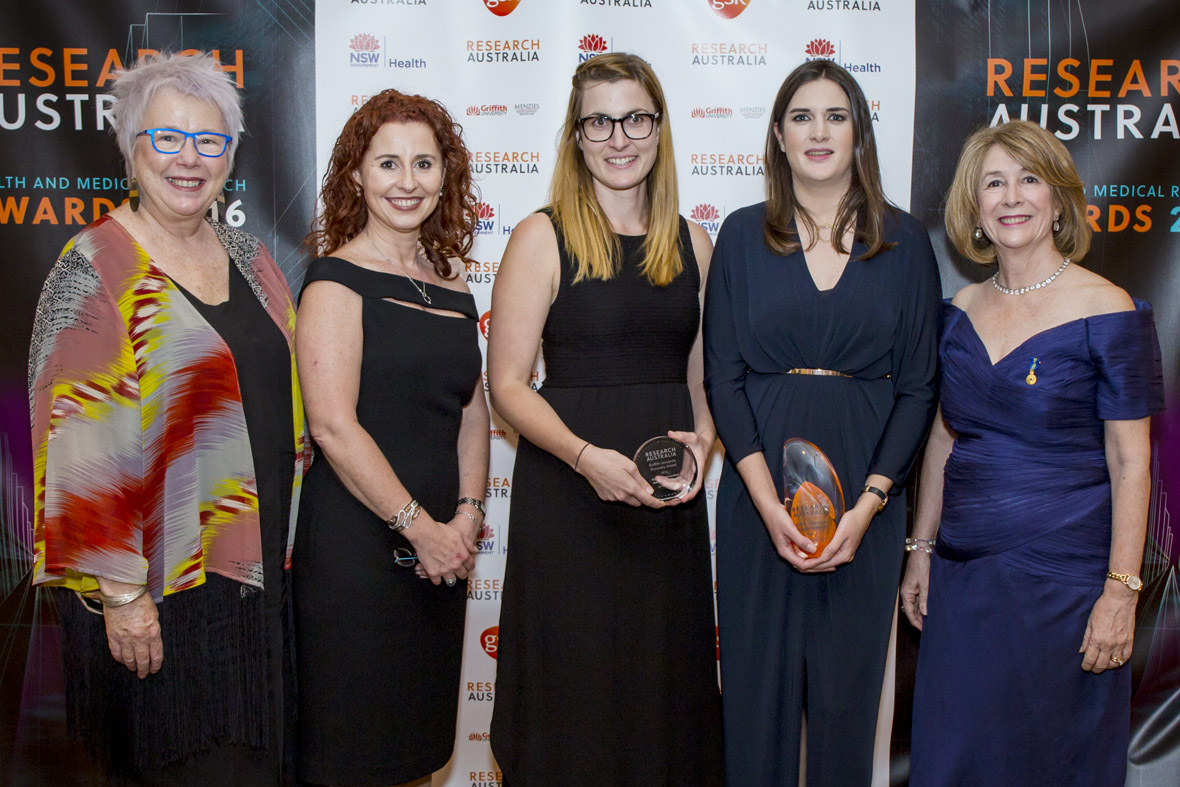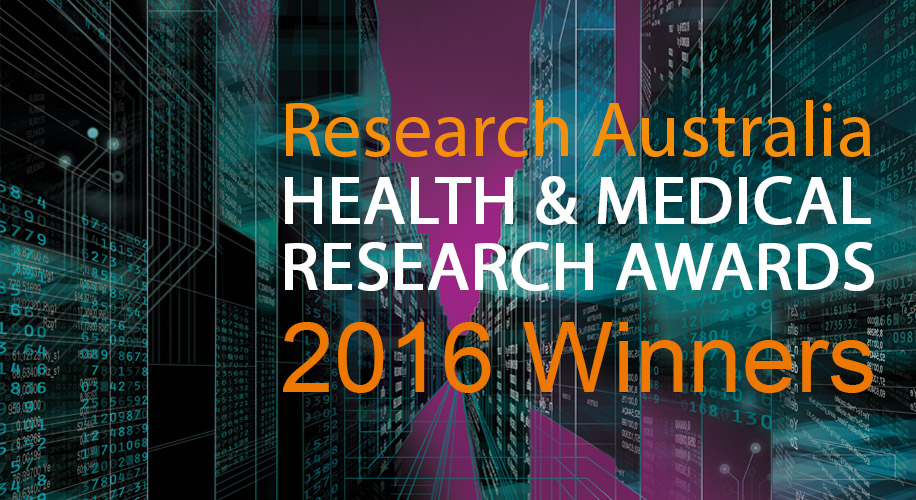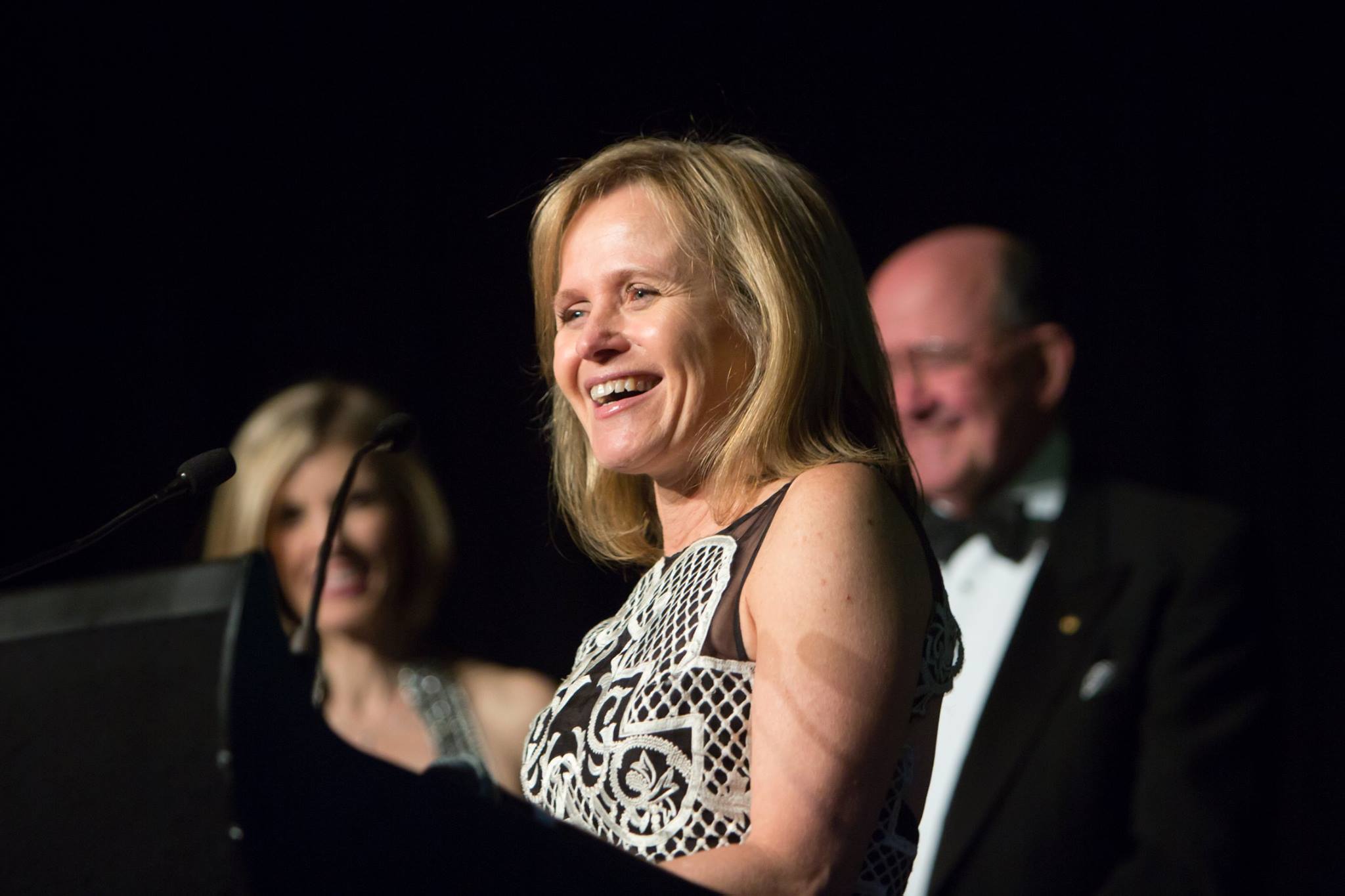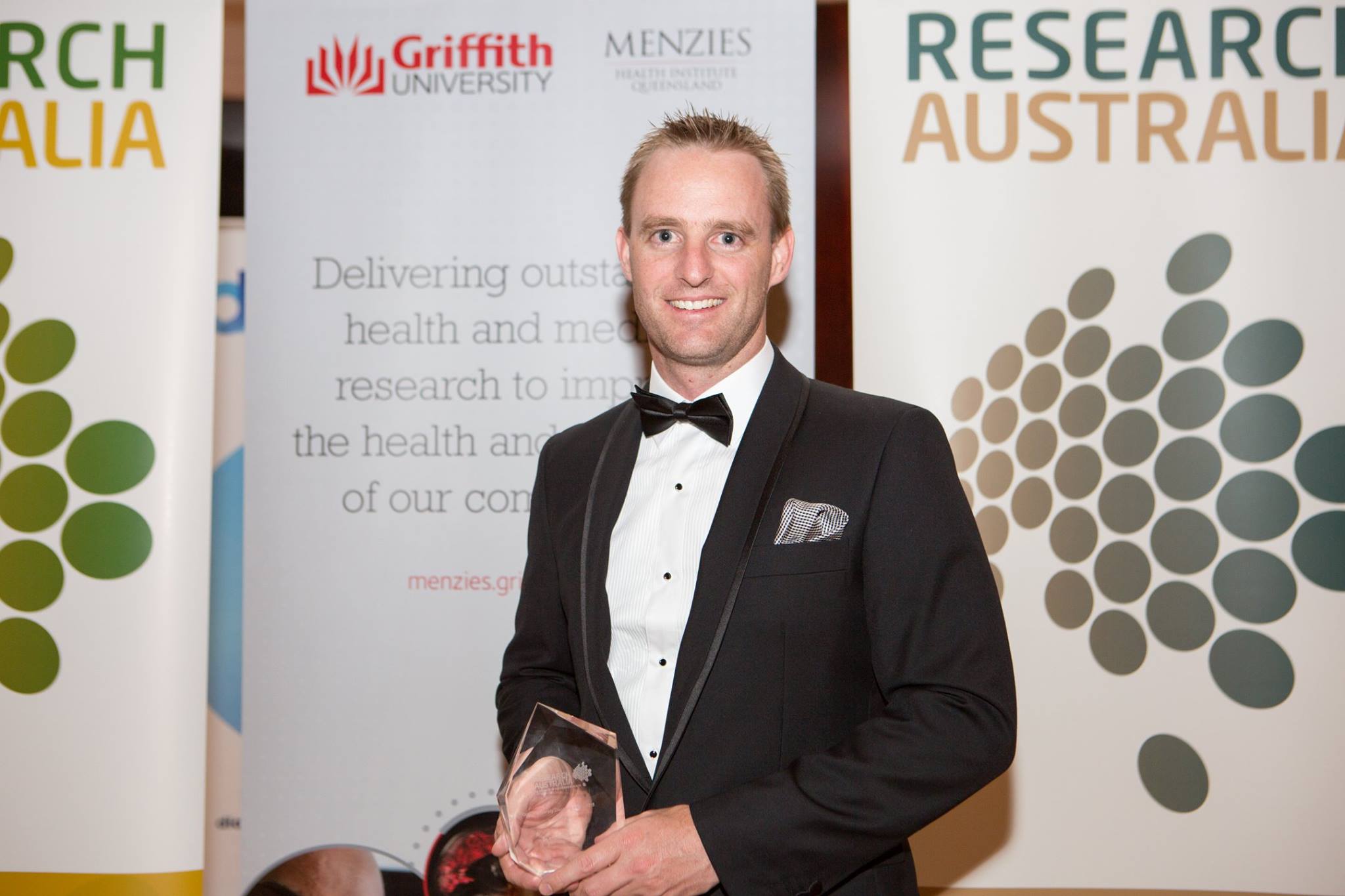Congratulations to the Griffith University Discovery Award Finalist: Dr Lucia Romani
2017 Griffith University Discovery Award Winner: Dr Avnika Ruparelia

Congratulations to Award Winner –
Dr Avnika Ruparelia, Monash University
Dr Avnika Ruparelia is an early career researcher in the School of Biological Sciences at Monash University, who has made outstanding contributions to the muscle disease field.
Continue reading “2017 Griffith University Discovery Award Winner: Dr Avnika Ruparelia”
The young researcher using zebrafish to understand progressive muscle weakness
Seventy per cent of human genes are found in zebrafish and it’s this incredible commonality which has helped Monash University early career researcher Dr Avnika Ruparelia to better understand the causes of progressive muscle weakness.
At last nights annual Health and Medical Research Awards held by national advocacy body, Research Australia Dr Ruparelia received the Griffith University Discovery Award for her ground-breaking research into the causes and therapeutics for a group of late onset muscle disorders known as myofibrillar myopathies.
Continue reading “The young researcher using zebrafish to understand progressive muscle weakness”
2016 Discovery Award Winner: Dr Rebecca Coll
Research Australia
Health & Medical Research Awards
2016 Griffith University Discovery Award
Congratulations to Award Winner
Dr Rebecca Coll
Institute of Molecular Bioscience
University of Queensland
Dr Rebecca Coll is an Early Career Researcher at The University of Queensland (UQ) Institute for Molecular Bioscience (IMB), studying innate immunity and novel anti-inflammatory drugs.
Continue reading “2016 Discovery Award Winner: Dr Rebecca Coll”
Australian Health and Medical Research Night of Nights
Media Release: 17 November 2016
Australia’s most inspiring health and medical researchers, advocates and philanthropist were celebrated last night at the 2016 Research Australia Health and Medical Research Awards.
Nadia Levin, CEO of Research Australia, said the night was a magnificent success that paid tribute to the efforts and energy of some of the sectors biggest names and most promising up-and-comers.
“Last nights’ Health and Medical Research Awards prove that Australia’s research sector is a force to be reckoned with,” said Ms Levin.
“We were joined by hundreds of people who tirelessly work to improve the health and wellbeing of our wider community, and it was an honour to acknowledge their work.
“The best health and medical research requires innovation, drive, creativity and ingenuity, and the 2016 Research Australia Award Winners exemplify all of those characteristics,” she said.
Continue reading “Australian Health and Medical Research Night of Nights”
Brain vs The Bottle
Media Release: Thursday, 3 November 2016
Melbourne alcohol researcher Dr Michael Livingston has been nominated for Research Australia’s Griffith University Discovery Award for his work in alcohol policy, and the impact that he has had in changing ideas around drinking habits.
“Alcohol contributes to a whole suite of health and social problems in Australia, and working on ways to reduce these harms is incredibly motivating,” said Dr Michael Livingston.
Front row seat to health and medical research excellence – Tickets on sale now!
Media Release: Tuesday 4 October 2016
It’s time to celebrate some of Australia’s best, brightest and generous – join the prestigious 14th annual black tie event at the Research Australia Health & Medical Research Awards, to be held at 7pm on Wednesday 16 November 2016.
The Award categories span from young researchers to philanthropy, to reflect the multitude of important roles and contributions, that all come together to make Australian health and medical research a powerful force.
CEO of Research Australia, Nadia Levin, said she is thrilled to invite members of the community to come together and congratulate the hard work of these inspiring individuals.
Continue reading “Front row seat to health and medical research excellence – Tickets on sale now!”
Research Australia Health & Medical Research Awards Nominations Now Open!
Media Release: Tuesday 28 June 2016
The Research Australia Health & Medical Research Awards: Nominations open for fresh faces, experienced hands and every health and medical researcher in between
Applications opened today for the Research Australia Awards, recognising contributions in everything from cutting edge research through to advocacy, and philanthropic work.
In a field dedicated to improving the lives of Australians, the Research Australia Awards are an opportunity to celebrate those who make life-changing advances possible.
“There are so many extraordinary people in this sector who are deserving of recognition, and we are calling for them to nominate themselves and their colleagues,” said CEO of Research Australia, Nadia Levin.
“The Awards are the health and medical research industry’s night of nights – they are the opportunity for the best and brightest in the industry to recognise each other’s achievements.
Continue reading “Research Australia Health & Medical Research Awards Nominations Now Open!”
2015 Discovery Award Winner: Dr Andrew Gardner
Research Australia
Health & Medical Research Awards
2015 Griffith University Discovery Award
Award Winner
Dr Andrew Gardner
School Of Medicine & Public Health
University Of Newcastle
Dr Gardner has conducted research in the field of sports concussion for the past eight years. He received first class honours in Psychology (University of New England) and subsequently completed a Doctor of Psychology (Clinical Neuropsychology) degree at Macquarie University, Sydney, where he conducted research in to the acute and cumulative neuropsychological consequences of sport-related concussion. His thesis received the prestigious award for the Most Outstanding Dissertation for 2011 from the National Academy of Neuropsychology (USA). During his post-graduate studies he also pioneered and managed the Macquarie University Sports Concussion Clinic.
Following this Dr Gardner completed his PhD at Newcastle University, studying the potential long-term consequences of participation in collision sports. He has published 16 peer review articles, two book chapters, presented at numerous national and international conferences, and has contributed to the policy papers of Brain Injury Australia and Alzheimer’s Australia (NSW). In 2013 he was invited as a leading early career researcher to contribute to the Australian Academy of Science Theo Murphy High Flyer’s Think Tank on ‘inspiring smarter brain research in Australia’. He was also awarded an Australian Endeavour Research Fellowship to visit Harvard Medical School for four months in 2014. He is the Co-Director of the Hunter New England Sports Concussion Clinic.
Dr Gardner is now focusing on the potential long-term consequences of participation in collision sports. He is attempting to delineate the effect of head trauma as a risk factor for later life neurodegenerative disease by undertaking neuropsychological testing and neuroimaging investigation in active and retired athletes. His current research includes working on assessing retired rugby league players to determine their cognitive, neurological, psychiatric and psychological profiles. He is also currently also working on the video analysis of concussion in the National Rugby League, the first time this has ever been conducted. Dr Gardner created a tool, the Observational Research Analysis of Concussion in League Evaluation (ORACLE), that he is validating to assist club medical staff with recognising/detecting players who may have sustained a concussion (and should be removed from play for further assessment).
The results of the video analysis and the use of the ORACLE will hopefully help prevent concussions by identifying at-risk behaviour, in addition to detecting concussion, which will significantly improve player welfare. He is currently involved with a consortium of researchers from Cardiff University Brain Imaging Research Centre (CUBRIC) in research discussion with the Welsh Government and Welsh Rugby Union to monitor and examine concussed active and retired players.
..

